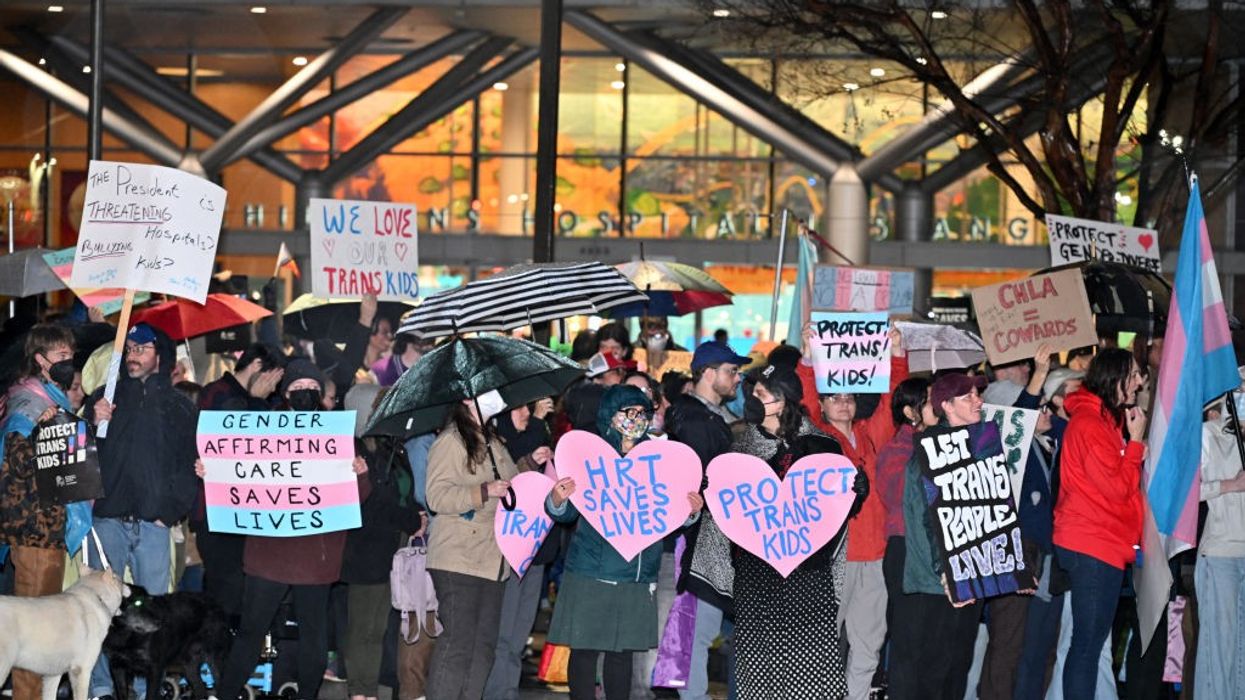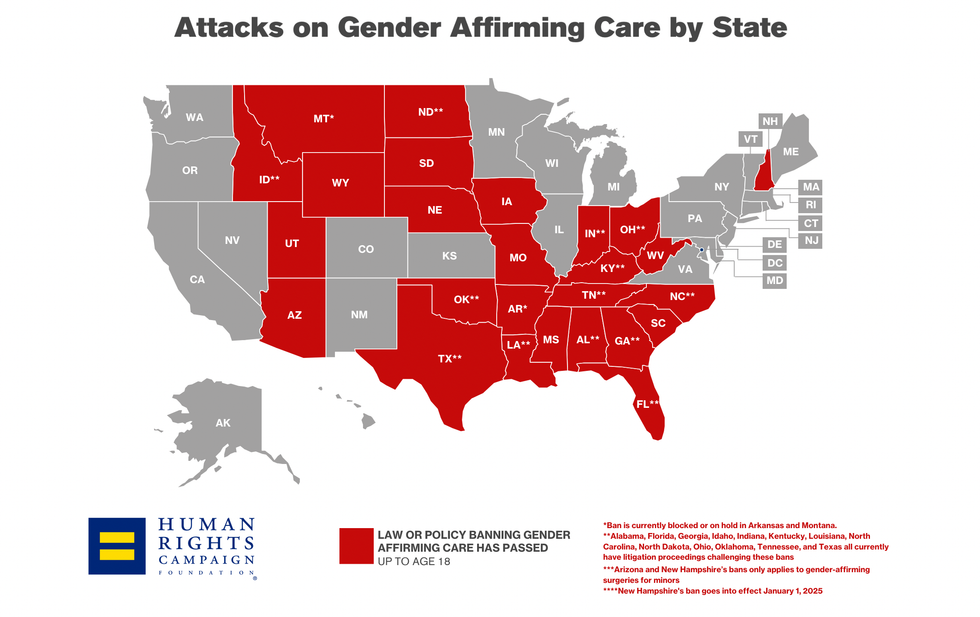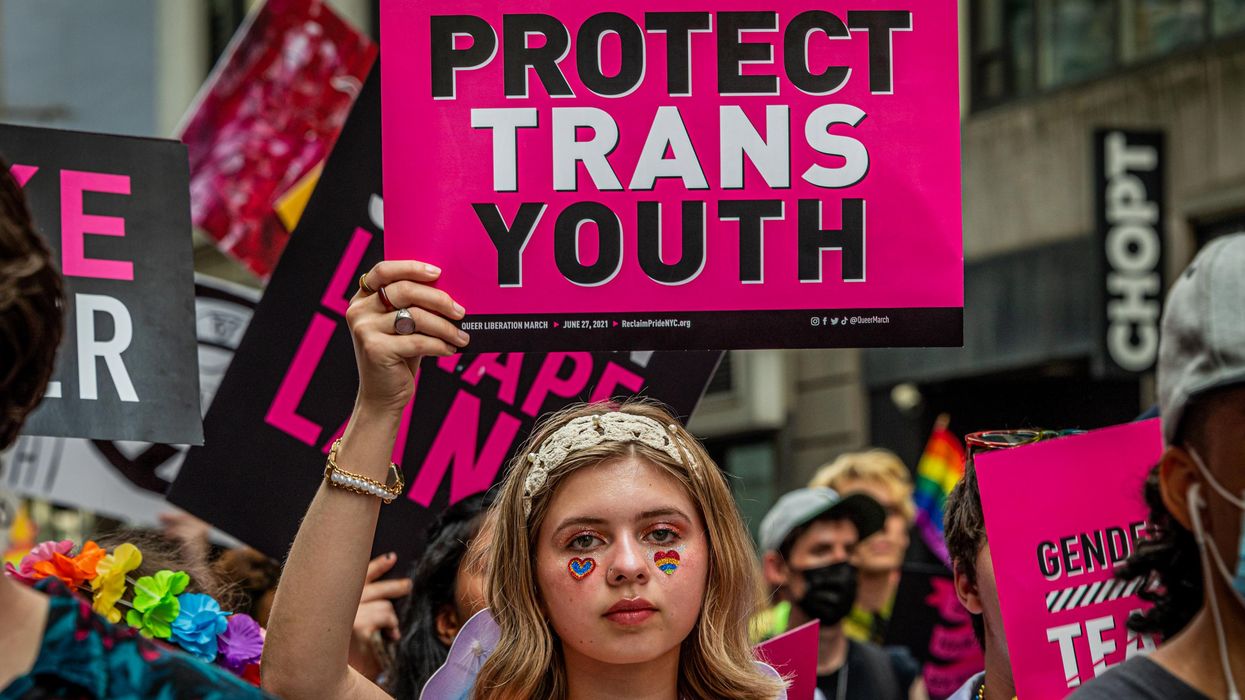'We Will Fight': Denver Schools Defy Trump's Attacks on Trans Students Despite Threats to Federal Funds
"The district has made clear it will not fold quietly, signaling that some institutions still have the resolve to stand against a federal campaign of erasure," wrote one LGBTQ+ rights journalist.
As educational institutions around the country capitulate, Denver's public school system said Tuesday that it would defy demands from the Trump administration to discriminate against transgender students even if it means losing federal funds.
Alex Marrero, the superintendent of Denver Public Schools (DPS), said the school "will protect all of their students from this hostile administration," by refusing to implement a ban on gender-neutral bathrooms mandated by Trump's Department of Education.
On Thursday, the department's Office for Civil Rights (OCR) sent Denver Public Schools an email demanding that the school remove a multi-stall, gender-neutral restroom at one of its high schools, which it claimed violated Title IX of the Civil Rights Act.
As Erin Reed, an independent journalist who covers LGBTQ+ rights, notes, the facility built by DPS and other schools is "similar to facilities in major airports, European cities, and increasingly across the United States." The school, meanwhile, has said that the facility was requested by students themselves and has 12-foot high partitions to protect their privacy.
The OCR went further. To be compliant with Title IX, it said, the school also had to "adopt biology-based definitions for the words 'male' and 'female'," meaning they needed to classify transgender students by their biological sex at birth rather than their preferred identities, including banning them from restrooms that do not correspond to their biological sex.
The Trump administration also called on the school to eliminate components of its "LGBTQ+ Toolkit," which includes guidance on how students and faculty can create a welcoming environment for their trans peers. Among other things, the document encourages members of the school community to step in to stop bullying of LGBTQ+ students, respect the preferred pronouns of all students, and for faculty to enforce dress codes in a gender-neutral way.
As Reed put it, the department was effectively "claiming that Title IX actually mandates discrimination against transgender students."
If DPS refused to comply within 10 days, the department threatened to strip the district of federal funding, which makes up 7% of the school's annual budget, according to Chalkbeat. A large portion of that federal money goes toward low-cost school lunches for poor children.
In a statement issued Tuesday, DPS's school board and administration put out a statement "disagreeing unequivocally" with the government's interpretation of the law.
"Title IX permits schools to provide sex-separate restrooms. It does not require that to be the only option," DPS argued. "The interpretation put forward by OCR would undercut our equity commitments, contradict our mission, harm the very students we are entrusted to support, and would have a devastating impact on East High School and the broader LGBTQ+ community. What matters most is that students are safe, have privacy, and can learn without fear."
"The decision to implement gender-neutral restrooms at East followed direct feedback from LGBTQ+ students who reported they did not feel safe," the statement continued. "For these students, access to a restroom where they feel secure is not symbolic. It is about dignity, health, and the ability to learn. When students speak, we listen and we act."
Superintendent Marrero, meanwhile, put out a short video on Instagram expressing his support for the district's LGBTQ+ students.
"As you might have seen in the news, the federal government has decided to take a firm stance and have us roll back our support to the LGBTQ+ community, and of course, we're not having it," Marrero said. "We will continue to stand in solidarity, and as you engage this weekend and beyond, I just wanted to let you know that we got you, and everything is going to be ok."
In a statement published alongside the video, Marrero wrote: "We will fight. In the courts, if we must. In the public square, when necessary. Always in partnership with those who believe that every student deserves to show up to school ready to learn, free from fear."
With this pledge to stand by its LGBTQ+ students, DPS joined five school districts in Virginia that last month responded with similar defiance when the Trump administration ordered them to stop allowing trans students to use bathrooms matching their gender. Those districts—which include Loudoun, Arlington, and Fairfax Counties—have launched a lawsuit against the Trump administration to keep their federal funding.
"Elite institutions like Brown, Columbia, and Penn—as well as multiple hospitals serving transgender youth—have already capitulated, signing away protections through bathroom and sports bans or cutting off medical care entirely," Reed wrote. "Denver Public Schools, by contrast, has drawn a line. With the Department of Education's deadline looming next Monday, the district has made clear it will not fold quietly, signaling that some institutions still have the resolve to stand against a federal campaign of erasure."


 (Image:
(Image: